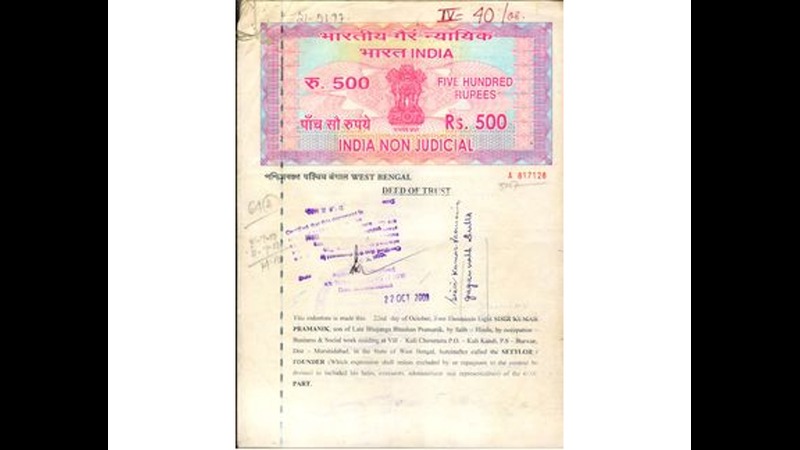Kanwar Raj Singh (D) Th. Lrs. vs. Gejo. (D) Th. Lrs & Ors. [2024 INSC 1]
Section 47 of the Registration Act only lays down the time from which a registered document would operate
RELEVANT PARAGRAPH
6. On plain reading of Section 47, it provides that a registered document shall operate from the time from which it would have commenced to operate if no registration thereof was required. Thus, when a compulsorily registerable document is registered according to the Registration Act, it can operate from a date before the date of its registration. The date of the operation will depend on the nature of the transaction. If, in a given case, a sale deed is executed and the entire agreed consideration is paid on or before execution of the sale deed, after it is registered, it will operate from the date of its execution. The reason is that if its registration was not required, it would have operated from the date of its execution.
7. Now, we come to the decision of the Constitution Bench in the case of Ram Saran Lall (Supra). In paragraph 8 of the judgment, the Constitution Bench held thus:
“8. We do not think that the learned Attorney General’s contention is well founded. We will assume that the learned Attorney-General’s construction of the instrument of sale that the property was intended to pass under it on the date of the instrument is correct. Section 47 of the Registration Act does not, however, say when a sale would be deemed to be complete. It only permits a document when registered, to operate from a certain date which may be earlier than the date when it was registered. The object of this section is to decide which of two or more registered instruments in respect of the same property is to have effect. The section applies to a document only after it has been registered. It has nothing to do with the completion of the registration and therefore nothing to do with the completion of a sale when the instrument is one of sale. A sale which is admittedly not completed until the registration of the instrument of sale is completed, cannot be said to have been completed earlier because by virtue of Section 47 the instrument by which it is effected, after it has been registered, commences to operate from an earlier date. Therefore we do not think that the sale in this case can be said, in view of Section 47, to have been completed on January 31, 1946. The view that we have taken of Section 47 of the Registration Act seems to have been taken in Tilakdhari Singh v. Gour Narain [AIR (1921) Pat 150] . We believe that the same view was expressed in Nareshchandra Datta v. Gireeshchandra Das [(1935) ILR 62 Cal 979] and Gobardhan Bar v. Guna Dhar Bar [ILR (1940) II Cal 270].” (underline supplied)
8. The Constitution Bench held that Section 47 of the Registration Act does not deal with the issue when the sale is complete. The Constitution Bench held that Section 47 applies to a document only after it has been registered, and it has nothing to do with the completion of the sale when the instrument is one of sale. It was also held that once a document is registered, it will operate from an earlier date, as provided in Section 47 of the Registration Act.
10. Every sale deed in respect of property worth more than Rs. 100/- is compulsorily registerable under Section 54 of the Transfer of Property Act. Thus, a sale deed executed by the vendor becomes an instrument of sale only after it is registered. The decision of the Constitution Bench only deals with the question of when the sale is complete; it does not deal with the issue of the date from which the sale deed would operate. Section 47 of the Registration Act does not deal with the completion of the sale; it only lays down the time from which a registered document would operate.
